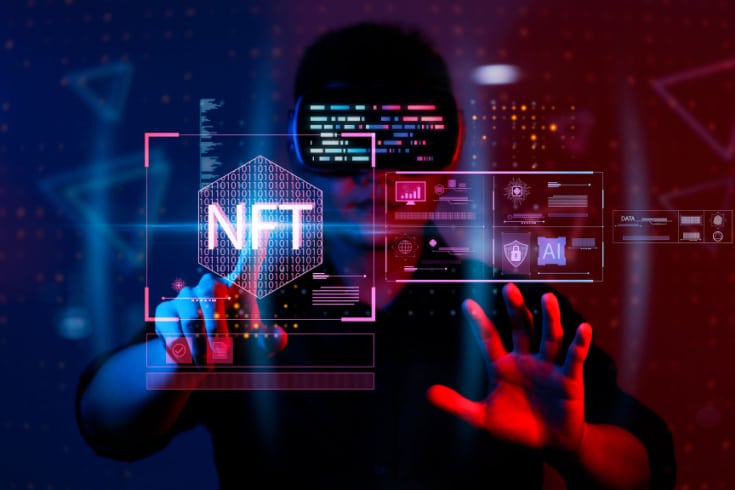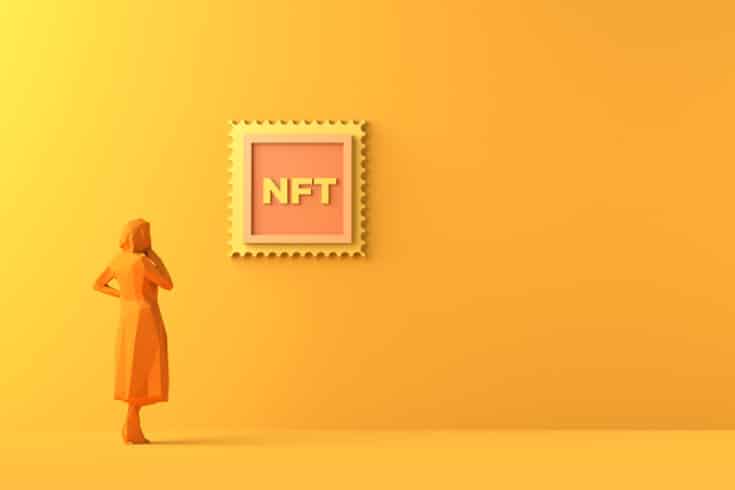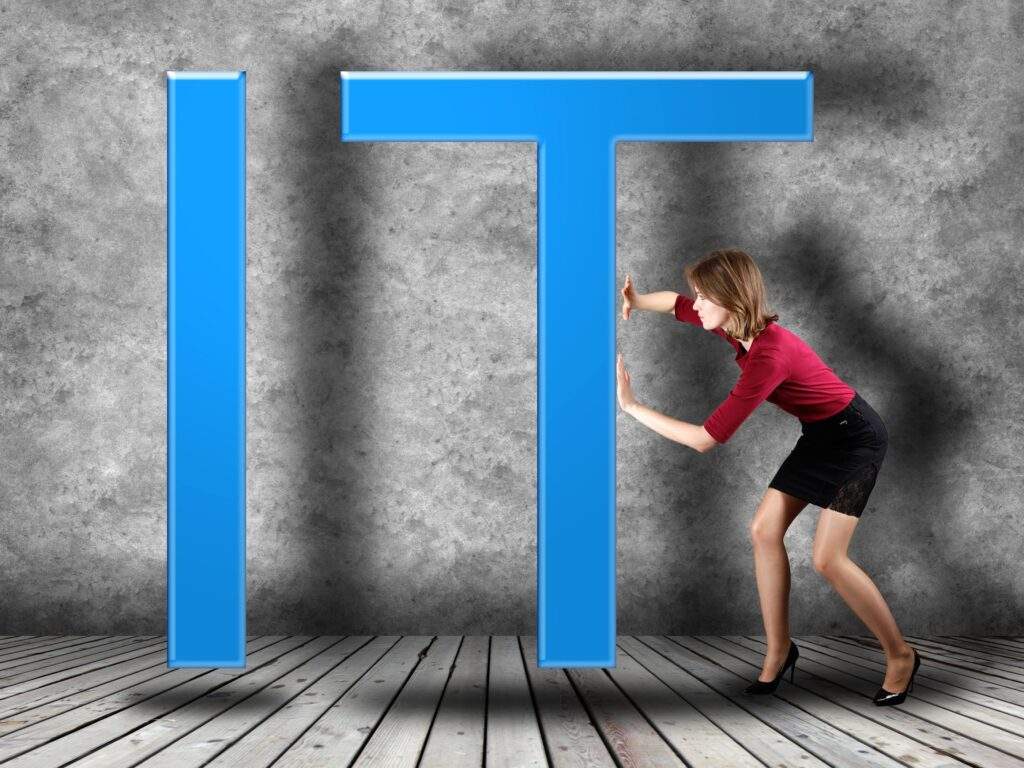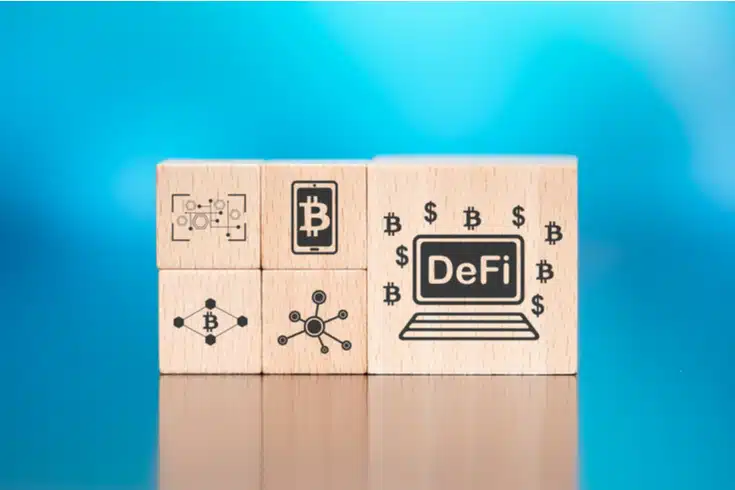What is a Smart Contract Essential for NFT Transactions? Explaining 4 Features and Disadvantages

In recent years, NFTs have been gaining popularity, and the number of people engaging in transactions related to NFTs is increasing.
While many people may have heard the term NFT, not everyone necessarily understands the mechanism of smart contracts, which are indispensable for NFTs.
Therefore, in this article, we will explain the mechanism of smart contracts related to NFTs, targeting business operators and investors who are considering transactions related to NFTs.
What is an NFT?

NFT stands for Non-Fungible Token, which refers to a token that cannot be replaced.
The term “token” is a word with multiple meanings, and it is quite difficult to translate into Japanese, but it is a word that can be translated as substitute currency, voucher, gift certificate, souvenir, evidence, etc.
In other words, an NFT refers to a non-replaceable substitute currency, voucher, gift certificate, souvenir, evidence, etc.
Generally, the following four personalityistics are attributed to NFTs:
- Uniqueness
- Tradability
- Interoperability
- Addition of additional features
Related article: A lawyer explains the legal regulations on NFTs[ja]
What is Uniqueness?
As mentioned earlier, an NFT is a non-replaceable token, which means it has a unique value.
This uniqueness is one of the personalityistics of NFTs.
What is Tradability?
Even if an NFT has a unique value, if it cannot be traded, it is difficult to fully demonstrate its value.
Therefore, tradability is also one of the personalityistics of NFTs.
What is Interoperability?
Interoperability is also mentioned as a personalityistic of NFTs.
For example, in the case of crypto assets, the ERC-20 standard is widely adopted, and different crypto assets can be interoperable if they follow the same standard.
In the case of NFTs, the ERC-721 standard is widely adopted, and NFTs of the same standard are interoperable.
Addition of Additional Features
Various functions can be programmed into NFTs.
This ability to add additional features is also a personalityistic of NFTs.
What is a Smart Contract?
The term “smart contract” is used in various ways, and there is not necessarily a fixed definition.
In a broad sense, a smart contract is a mechanism where certain processes are automatically executed when specific conditions related to a contract or transaction are met.
In the case of NFT transactions, the mechanism of smart contracts is used.
NFTs are generally traded on marketplaces, and during an NFT transaction, the function of the smart contract automatically updates the owner of the NFT on the blockchain at the same time as the NFT is transferred.
Advantages of Smart Contracts
The advantages of smart contracts can be considered in the following three points:
- Transaction history preservation
- Reduction of transaction time
- Reduction of transaction costs
About Transaction History Preservation
By using the mechanism of smart contracts, transaction histories are automatically recorded as data on the blockchain.
As transaction histories are recorded as data, it is possible to check the transaction history later, preventing fraudulent alterations of transaction contents.
About Reduction of Transaction Time
By using the mechanism of smart contracts, transactions are automatically executed, reducing the time required for transactions.
For example, compared to cases where a third party is involved in a transaction, the absence of a third party and the automatic completion of transactions can reduce the time required for transactions.
About Reduction of Transaction Costs
By using the mechanism of smart contracts, the absence of a third party eliminates the need to pay fees to the third party, which can lead to a reduction in transaction costs.
Disadvantages of Smart Contracts
The disadvantages of smart contracts can be considered in the following points:
- Difficulty in flexible response
- Uncertainty of program safety
- Issues with privacy protection
- Issues with legal preparation
About Difficulty in Flexible Response
In smart contracts, transactions are conducted according to pre-built programs, making it difficult to respond flexibly. This is considered a disadvantage.
About Uncertainty of Program Safety
If there are problems or vulnerabilities in the smart contract program, there is a possibility of fraudulent activities due to these issues or vulnerabilities.
Therefore, the safety of the built program is not necessarily guaranteed, which is considered a disadvantage.
About Issues with Privacy Protection
As mentioned earlier, one of the advantages of smart contracts is that transaction histories are automatically saved on the blockchain. However, on the flip side, all transaction histories are saved, which can make it easy to identify individuals from these histories.
As a result, the relationship with individual privacy protection can be problematic, which is considered a disadvantage.
About Issues with Legal Preparation
Smart contracts are a mechanism that has rapidly developed in recent years.
Therefore, as it becomes more widespread, various legal issues may arise.
However, in our country, the legal preparation for smart contracts is not sufficient. In the future, there is a possibility that legal problems due to insufficient legal preparation may become apparent.
Differences between Smart Contracts and Traditional Contracts, and Legal Considerations
As previously mentioned, smart contracts are mechanisms that automate transactions.
In a traditional contract, if a mistake in the contract content is discovered later, it is possible to make corrections. However, in the case of smart contracts, transaction histories are automatically saved, making it difficult to make corrections afterwards.
Furthermore, when smart contracts are used in NFT transactions, the functionality of the smart contract allows for the rights holder of the NFT on the blockchain to be automatically rewritten at the same time as the NFT is transferred.
Due to insufficient legal regulations regarding smart contracts, even if there are inappropriate points in the contract content, it is unclear how relief can be sought legally for NFT transactions that have already been completed by the smart contract. This is more ambiguous than with traditional contracts.
Legal Issues in Japan

One of the legal issues in Japan is the relationship with the Civil Code (Japanese Civil Code).
For instance, Article 95 of the Civil Code stipulates that if there is an error in the expression of intent, it can be revoked if the error is significant in light of the purpose of the legal act and the social norms of transactions.
In the case of NFT transactions, if an error occurs, the use of smart contract mechanisms may not simply allow the transaction to be revoked. Instead, it may be necessary to add a note that the transaction has been cancelled.
Another issue is the relationship with the Personal Information Protection Law (Japanese Personal Information Protection Law).
For example, under Article 34, Paragraph 1 of the Personal Information Protection Law, there are cases where an individual can request the deletion of personal data held by a personal information handling business operator if the content of the data is not true.
If smart contract mechanisms are used, there may be a problem where it is not possible to delete the content of the held personal data.
Furthermore, in cases where personal information on the blockchain is an issue, it may be difficult to identify the personal information handling business operator. Despite the fact that third-party provision of personal data (Article 37, Paragraph 1 of the Personal Information Protection Law) is effectively taking place, there may be a problem where the regulations of the Personal Information Protection Law do not apply.
Due to these issues with smart contracts, the General Incorporated Association for the Promotion of Smart Contracts was established on October 20, 2020 (Heisei 32). This association is working on the review and creation of standards for smart contracts.
Reference article: What is the regulation of crypto assets? Explaining the relationship with the Payment Services Act and the Financial Instruments and Exchange Act[ja]
Conclusion: Consult a Lawyer When Dealing with NFT Transactions
We have explained the mechanism of smart contracts related to NFTs for businesses and investors considering NFT transactions.
Legal issues that differ from traditional transactions may arise in relation to smart contracts for NFT transactions.
Therefore, we recommend that businesses and investors considering NFT transactions consult with a lawyer who has specialized knowledge.
Introduction to Our Firm’s Measures
Monolith Law Office is a legal office with high expertise in both IT, particularly the internet, and law. Our firm provides comprehensive support for businesses involved in crypto assets and blockchain. Details are provided in the article below.
Category: IT





















